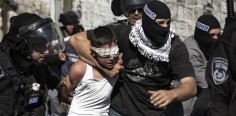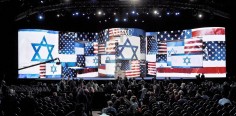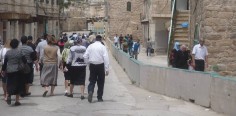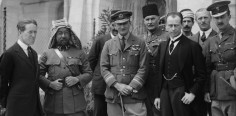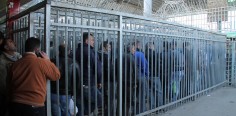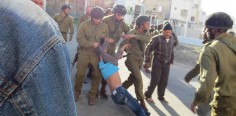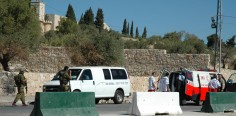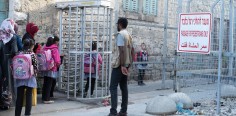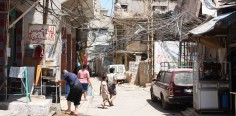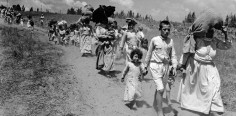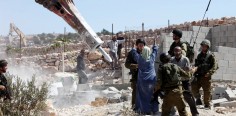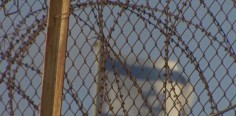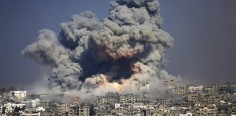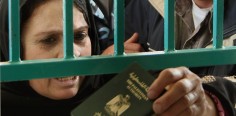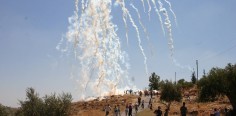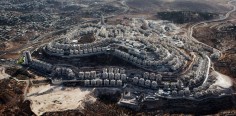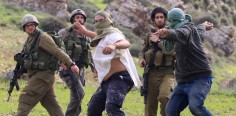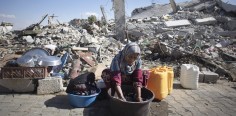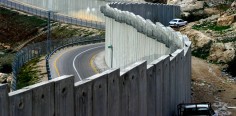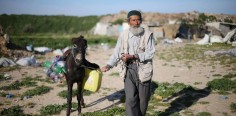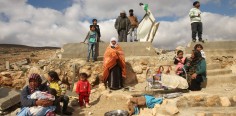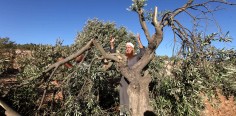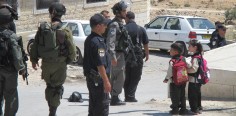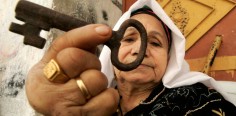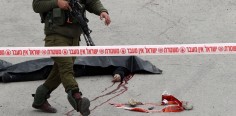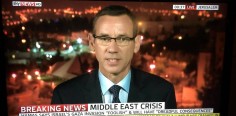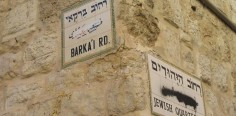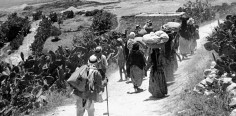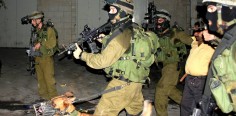MILITARY "JUSTICE" SYSTEM
ILL-TREATMENT OF PALESTINIAN CHILDREN IN THE ISRAELI MILITARY DETENTION SYSTEM APPEARS TO BE WIDESPREAD, SYSTEMATIC AND INSTITUTIONALIZED.
UNICEF
When Sharif and his wife Rania had a second child on the way, Sharif applied for a permit to work in Israel, where he could earn the higher wages needed to build his family a home. But soon after receiving the permit, soldiers stormed his apartment in the middle of the night, beat him in front of his young son and pregnant wife, and dragged him away.
Despite there being no evidence against him, he was convicted of stealing cars in Israel and sentenced to one year in prison. Meanwhile, his wife was left without an income, was forced to give birth alone and almost lost the will to live.
When Sharif finally came out of prison, he was bitter and scarred, and the family's life was never the same.

Palestinians are subject to an Israeli military justice system that does not live up to basic standards of due process.
Trials are often conducted in Hebrew, which many Palestinians do not speak, and rarely do they allow adequate legal representation to the accused.
Testimony given under torture, 'secret evidence' and testimonies offered by collaborators in return for money and permits are routinely admitted into evidence.
The result is a de facto presumption of guilt and a 99.74% conviction rate for Palestinians. Many end up taking plea bargains, knowing they are unlikely to get a fair trial in any case.
Hundreds of Palestinian children, some as young as twelve, are arrested by the Israeli army each year and no other country in the world prosecutes so many children in military courts. They are commonly tortured, beaten, interrogated, and/or coerced to sign confessions in Hebrew before being summarily sentenced, almost always without a lawyer or even their parents present. The most frequent charge is throwing stones at soldiers or armored Jeeps, and the sentences can stretch into years.
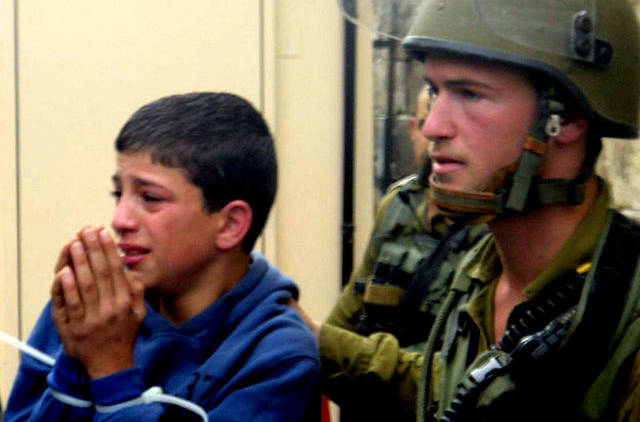
Most prisoners, including children, are held inside Israeli territory, in violation of international law, with highly restricted access to visits from loved ones and often in deplorable living conditions.
For men like Sharif, or peaceful activists held for nonviolent political activity, it can mean months or years of lost income, the separation or breakdown of families, and the beginnings of a lifetime of physical or mental illness. For children it can mean the end of their education as well as their innocence.
Virtually no Palestinian family is left untouched by Israel's military 'justice' system, which tears at the seams of Palestinian society. Roughly 40% of the male population of the territories has been through the Israeli prison system since 1967.
It's also worth noting that a completely separate Israeli civilian justice system applies to Israeli settlers living scattered throughout the West Bank. Israeli settlers are treated far more leniently, with fair legal representation and usually light sentences or none at all, even for violent crimes or vandalism. And an an Israeli child who throws stones at Palestinian women or schoolchildren will, at worst, be asked to stop by Israeli soldiers and almost never face a charge, much less jail time.
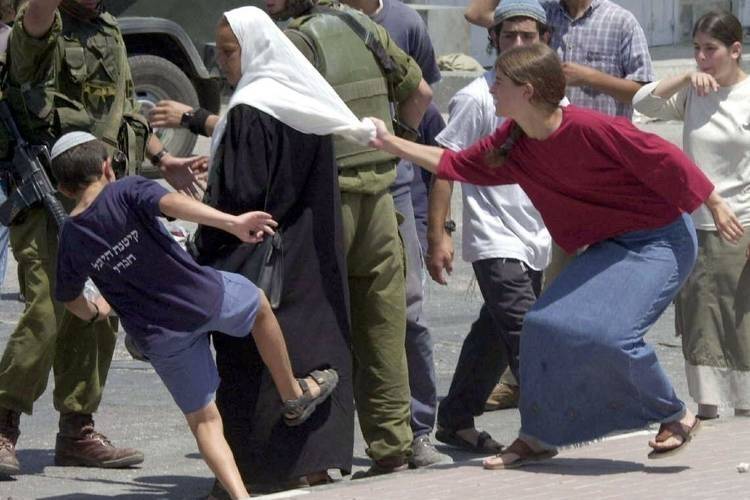
I was forced to invent stories and lie that I was there to stab a settler. Mama, don’t be angry, don’t believe anything they tell you, but this was the only way to stay alive.
Dima Al WawiI hoped they would say that there had been some kind of mistake and that I would be released, but unfortunately, the court accepted the four-month extension of the administrative detention and I was taken back to prison.
Nidal al-BumAlthough there was no prima facie evidence that the Appellant had committed an offense, or evidence that an offense had been committed at all, no grounds for detention or concern of flight risk, the judge still ordered a deposit of NIS 7,000 [approx. USD 1,750] as a condition for release.
Mujahed Jaradat
